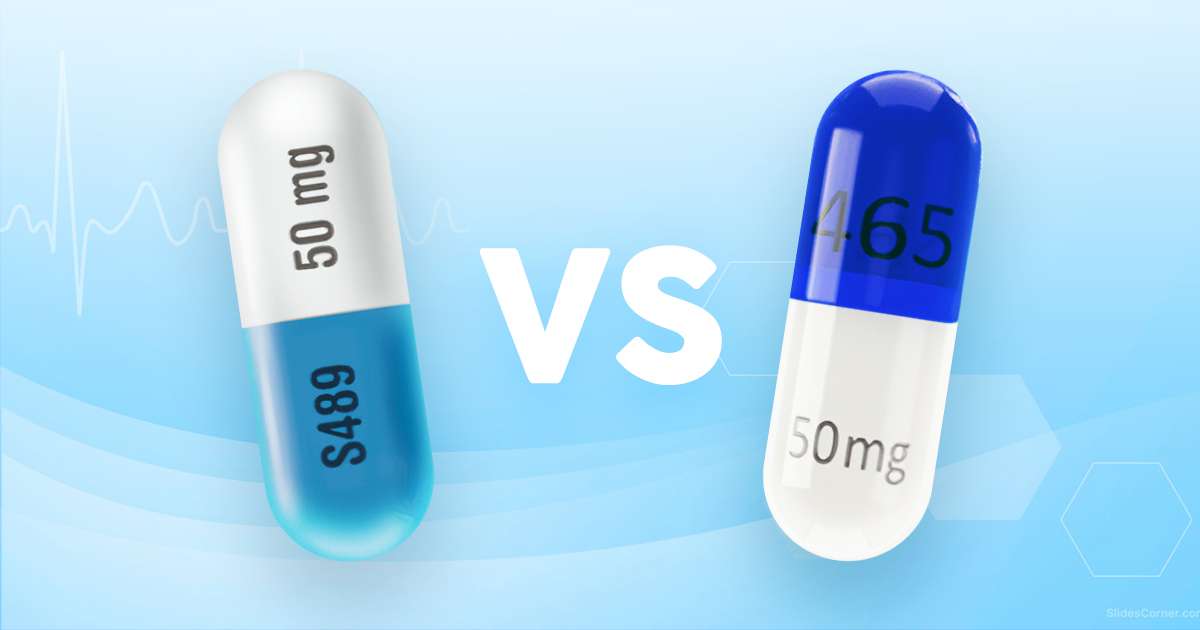Modafinil vs Vyvanse: Benefits, Drawbacks, and Costs for Informed Health Choices

While both Modafinil and Vyvanse fall under the category of stimulant medications, their impact on the brain varies slightly. Provigil is known for enhancing wakefulness and alertness, whereas Vyvanse, in addition to promoting wakefulness, can induce a sense of calm and focus in individuals with attention deficit hyperactivity disorder (ADHD).
Provigil vs Vyvanse
Modafinil (Provigil) is a prescribed medication aimed at enhancing wakefulness in individuals facing excessive sleepiness linked to conditions like narcolepsy, obstructive sleep apnea, or shift work disorder. Due to its potential for misuse, it is classified as a controlled substance. It is crucial to abstain from alcohol and certain medications while using modafinil to prevent adverse interactions. Common side effects include headaches and nausea.
Vyvanse (lisdexamfetamine) is a preferred medication for treating attention deficit-hyperactivity disorder (ADHD) and adult binge eating disorder (BED). Taken once daily, it can begin to take effect within a few hours. However, it is also classified as a controlled substance due to the risk of misuse and dependency, with common side effects including difficulty sleeping and appetite loss.
Uses of Vyvanse and Modafinil
Provigil has obtained FDA approval for addressing excessive daytime sleepiness associated with narcolepsy, sleep apnea, and shift work sleep disorder. In contrast, Vyvanse, although not FDA-approved for these specific purposes, is used off-label to address similar concerns.
On the other hand, Vyvanse has received FDA approval for the treatment of ADHD and is also sanctioned for addressing binge eating disorder. In the case of Provigil, it holds FDA approval for tackling daytime sleepiness related to narcolepsy, sleep apnea, and shift work sleep disorder but is employed off-label for managing ADHD and binge eating disorder.
Indications
For individuals grappling with excessive sleepiness stemming from narcolepsy, shift work disorder, or obstructive sleep apnea, Modafinil emerges as the optimal choice. On the other hand, Vyvanse proves to be the ideal solution for those managing attention deficit hyperactivity disorder (ADHD) in both adults and children aged 6 years and older, as well as for the treatment of moderate-to-severe binge eating disorder (BED) exclusively in adults.
Effectiveness
The applications of both Provigil and Vyvanse encompass:
- Treating ADHD: Clinical studies have not directly compared these medications for ADHD treatment. Nevertheless, an analysis of such studies suggests that Vyvanse may exhibit greater effectiveness in treating ADHD in adults compared to Provigil.
- Reducing Daytime Sleepiness: When it comes to alleviating daytime sleepiness in individuals with narcolepsy or other related disorders, no direct comparisons have been conducted in clinical studies. Notably, Provigil stands out as the primary medication of choice for this purpose, while Vyvanse serves as an alternative treatment option.
Common side effects
Modafinil’s side effects include:
- Headache (34%)
- Nausea (11%)
- Sensation of nervousness (7%)
- Nasal congestion (7%)
- Back discomfort (6%)
- Gastrointestinal discomfort (6%)
- Feelings of anxiety (5%)
- Dizziness (5%)
- Upset stomach and indigestion (5%)
- Difficulty falling asleep (5%)
Vyvanse side effects include:
ADHD
- Reduced appetite (up to 39%)
- Sleep challenges (up to 27%)
- Dry mouth (observed in 26% of adults)
- Abdominal discomfort (12% in children under 12 years old)
- Irritability (10% in children under 12 years old)
Binge Eating Disorder
- Dry mouth (36%)
- Sleep difficulties (20%)
Advantages
Modafinil offers several advantages, such as convenient once-daily dosing, the ability to enhance wakefulness without causing overstimulation, affordability as a lower-cost generic option, minimal interference with falling asleep when used as directed, and assistance in improving both attention and fatigue.
Vyvanse’s benefits include serving as a preferred choice for ADHD treatment, effective management of binge eating disorder, and rapid onset of action within 1.5 hours for children with ADHD and 2 hours for adults, lasting for 13 and 14 hours, respectively. Additionally, Vyvanse provides flexibility for those who have difficulty swallowing pills, as the capsules can be opened and sprinkled onto specific foods or replaced with chewable tablets.
Drawbacks
Modafinil has extensive interactions with various drugs, including hormonal birth control, warfarin (Coumadin), and omeprazole (Prilosec). Older adults and individuals with severe liver problems may require a lower dose. Its safety and efficacy in children are uncertain, and it is generally not recommended for use during pregnancy or while breastfeeding.
On the other hand, Vyvanse’s drawbacks include a potential risk of misuse and dependency, being a controlled medication with specific requirements for prescription filling. The dosage must be adjusted gradually to prevent side effects and withdrawal symptoms. It may not be the optimal choice for pregnant or breastfeeding individuals or those with heart conditions.
Costs
Provigil and Vyvanse are both branded medications, with Provigil having a generic form known as modafinil, whereas Vyvanse does not have a generic equivalent. Generally, generic drugs tend to be more budget-friendly than their brand-name counterparts. In terms of cost, Provigil is priced higher than Vyvanse. However, the generic version of Provigil is more affordable than Vyvanse. The specific amount you’ll pay is contingent on the coverage provided by your health insurance plan.
Understanding the differences between Modafinil vs Vyvanse for the right narcolepsy treatment
In navigating the complexities of Modafinil and Vyvanse, it’s crucial to consider the nuanced benefits and drawbacks each medication brings. Whether you’re seeking heightened wakefulness or targeted treatment for ADHD or binge eating disorder, understanding the distinctions in effectiveness and potential side effects is key.
It’s essential to consult with your healthcare provider to tailor a solution aligned with your unique needs and circumstances. With the comprehensive insights provided, take charge of your health by making informed decisions. Remember, your well-being is a priority, and a thoughtful conversation with your healthcare professional can guide you toward the most suitable path for your health journey.

